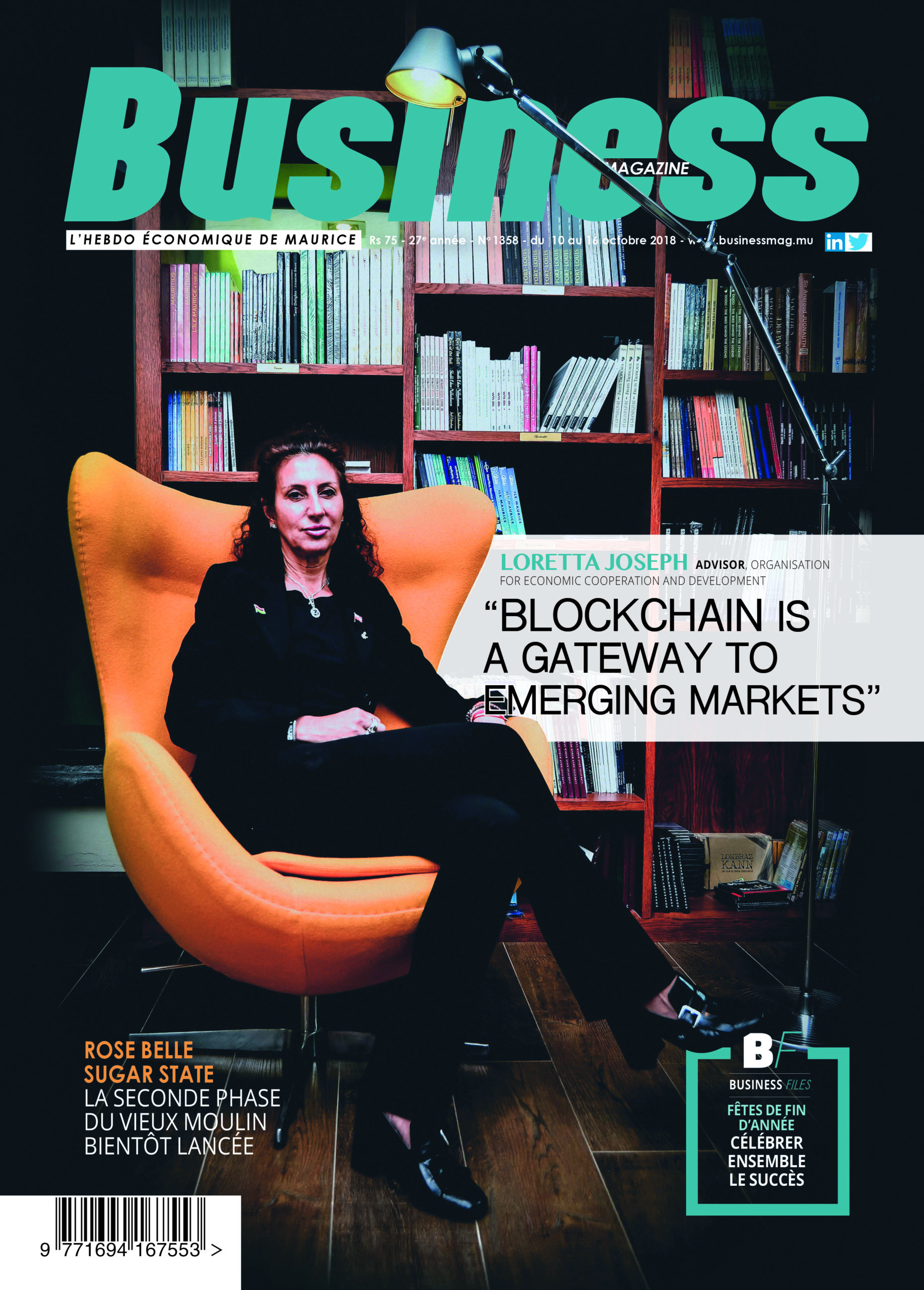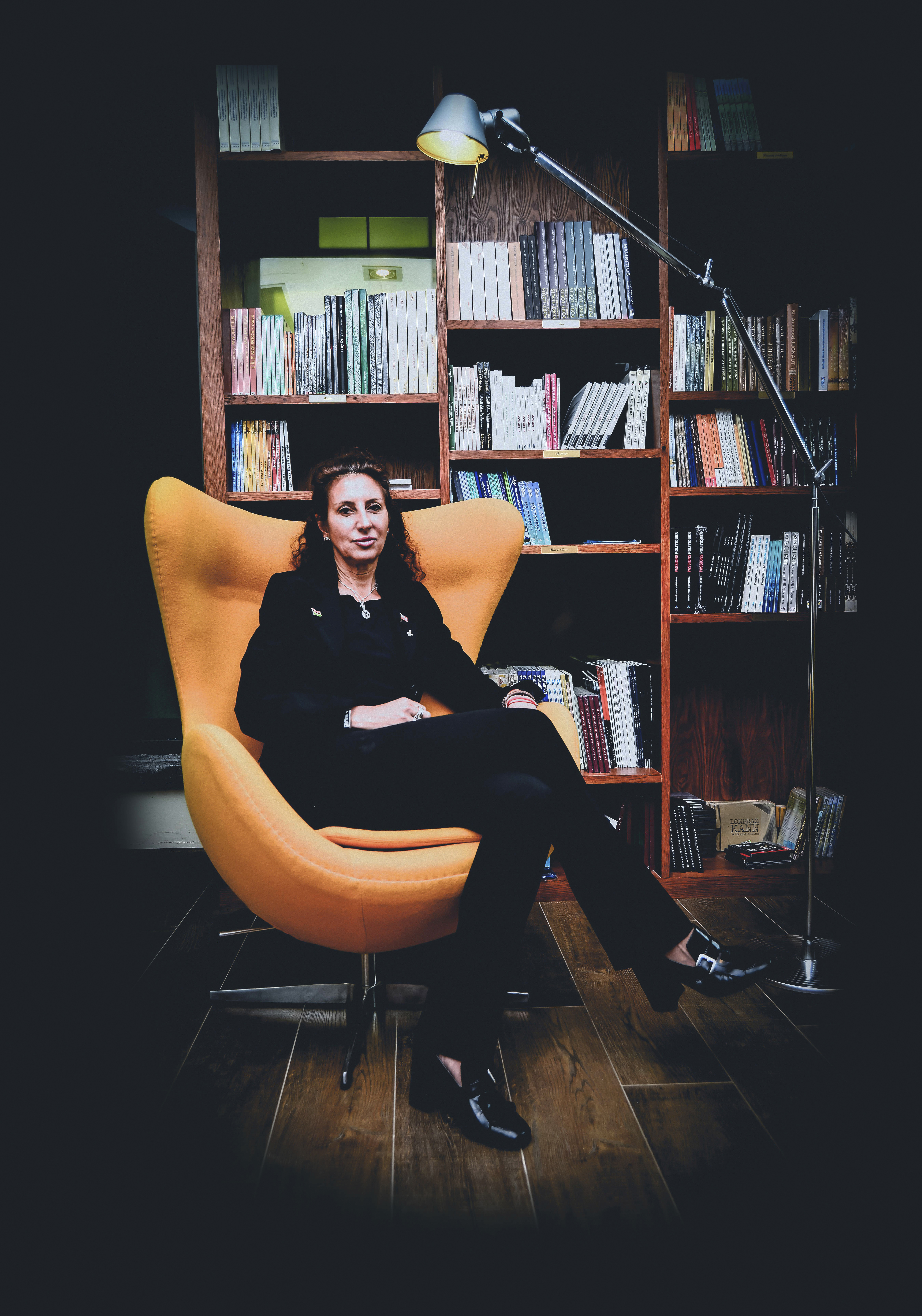“BLOCKCHAIN IS A GATEWAY TO EMERGING MARKETS”
Share

Can you share a few words on the milestones which have led you to become one of the foremost blockchain advisors at the Organisation for Economic Cooperation and Development?
As a former banker, with over twenty five years of experience, I have advised international banks, global hedge and pension funds on managing portfolio and exposure to derivatives and related products. I have worked for investment banks. And therefore hold expertise in global financial markets, multiple asset classes and emerging market environments. I have been involved with the blockchain technology since 2012. It is clear to me that blockchain is the fourth industrial and digital revolution. This underlying technology has the potential to solve real world problems which we are facing today. It will have a tremendous impact and deeply change the public and private sector and every industry vertical that exists in the economy. Among other things, I helped facilitate regulatory frameworks around digital assets in Australia. I chair the advisory board of ADCCA (Australian Digital Currency and Commerce Association). And as we begin this, let’s be honest: we are not talking of money. Let us be clear that cryptocurrencies are commodities, not currencies. They are a new digital asset class. Bitcoin is a barter system and cryptocurrencies are the first of many applications of the blockchain technology. The OECD’s mission is better policies for better lives. It is a standard setting body and sets policies a global level. More recently, the OECD has been building best practices and guidance between the international regulatory community and the ecosystem. It also builds capacity. I have been working very closely with the OEDE to advise on policy standardisation and harmonisation between jurisdictions of this new asset class. It is very important that there is an exchange of information between industry, the policymakers and the governments. The aim is to prevent jurisdictional arbitrage and to establish legal certainty around this new asset class.
}What are the limits of regulating new technologies?
Regulation has never kept up with innovation. You cannot regulate a technology but you can regulate the players using it. It is up to regulators and governments today to bring forward the policies and regulations which will be most beneficial for the future generations. The job of regulations is to protect consumers. However, we need laws which are technology agnostic, allow jurisdictions to harness opportunities and mitigate risks. It is very important that we have guidelines, clarity and certainty for an ecosystem of entrepreneurs if they are to continue to flourish and continue to innovate. At the same time, we keep nefarious players from participating.
Blockchain is feared as the most disruptive technology ever seen...
I prefer to use the word “enabler”. “Disruption” is a harsh term which does not convey the positive opportunities this revolutionary technology brings. Blockchain technology is yet in its infancy and every industry that we know will be “enabled” using it. Innovation is really good for emerging markets. For the first time in history, technology is a great leveler. Everybody can participate in it. Economies can use blockchain to better the lives of their citizens whether they’ve got 1.6 million or a billion people. Entrepreneurs will benefit greatly from it in unprecedented ways. An excellent research paper to consult for businesses is Data61, the Australian Data Innovation Report paper which came out last month. Data 61 is Australia’s leading digital research network and the conclusion of the report is that digital innovation hails opportunities worth AUD 315 billion for the future. It foresees improvement of existing businesses with added productivity, creation of new digital businesses, digital exportations and reaching new markets. Through investment in digital capital, and innovations in business processes, job verticals will be created and all these opportunities are only just beginning to appear.
}How can blockchain technology benefit to society at large?
Blockchain technology is the most revolutionary technology that we’ve seen since the inception of Internet. The implications will affect every industry verticals. For example, we have never been able to trace the provenance of goods, even the fish in our plates. So, from the authenticity of origin of goods to health records to land titles, once data is input through blockchain, it is immutable and cannot be changed. It encourages transparency, inclusion, efficiency and security. Industry standards and best practices are paramount at this moment. The industry needs to come together and we’re building it. Many players are joining together, even at association level also. Entrepreneurs are coming together to understand implications of the technology they are building.
}What should CEOs and stakeholders read or watch online to educate themselves about blockchain and its challenges and its range of opportunities?
For myself, as advised by Greg Medcraft, who was chairman of Australian Securities and Investments Commission (ASIC), who told me that blockchain technology would change the world, I read The Blockchain Revolution by Don Tapscott. There is also, on the academic side, an Oxford, MIT, Cambridge course which can be followed online. And there are many videos which are instructive and up to the point. Some experts in the field are Tim Draper, Andreas Antonopoulos, Professor David Shrier and Dr Jane Thomason, Joseph Weinberg, Vitalik Buterin amongst other.
As Fintech regulatory advisor to the government of Bermuda, you have actively supported the first Digital Asset Business Act…
Yes, it was the first Digital Asset Business Act in the world. Now we are working on a Banking Act to see how we bring banking services to the blockchain ecosystem. I champion the cause for responsible blockchain adoption with global governments, regulators and industry players. Innovation technologies like Artificial Intelligence, Internet of Things, and blockchain are moving at such a rapid pace that governments and regulations need to keep in line. Small countries like Bermuda and Mauritius are nimble countries which can lead the way. Because, when regulators and industries work together, they share knowledge, engage in capacity building. And the standards that they build together are better adapted for everyone. Emerging markets with few legacy systems benefit the most.
} The recent ESAAMLG report pointed out that Mauritius was not compliant in terms of technological readiness in Fintech. What is your take on this?
The recent ESAAMLG report pointed out that Mauritius was not compliant in terms of technological readiness in Fintech. What is your take on this? Show me one jurisdiction which is fully compliant in terms of FinTech. In the FinTech field, all the jurisdictions have challenges and are addressing them. This is work in progress across the globe. The big win of blockchain is to make data secure. Bitcoin was the first security protocol which came out of this technology. What Bitcoin solved, was the ability to move data securely for the first time. Over time, every corporation and government’s database has been centralised and compromised in some way. Bitcoin is the only database which has never been compromised. So, in the future, using blockchain, there will be a structure which will be so secure that it will be impenetrable. And it will just become normal infrastructure we won’t even be talking about in ten years. Things like Quantum computing are said to challenge this but let’s wait and see.
}The Central Bank of Mauritius has time and again expressed its mistrust in cryptocurrencies. How do you deal with such a position as advisor of the FSC?
Financial systems as we know have been around for several hundreds of years. Central Banks have managed commodities and money supply for over 400 years and we cannot replace existing systems with new technology systems overnight. The blockchain technology for banking institutions can be very useful as it automates processes and procedures for back offices. Those characteristics of security, immutability and transparency that blockchain offers are very interesting to Central Banks and they need to be cautious and responsible.
Mauritian government, Central Bank, FSC and the industry have been incredibly collaborative. Mauritius is a financial services hub and it does it very well. It has been innovating since the 1950s. I think Mauritius has the ability to use the best practices and standards it has always set around financial services to enable growth in financial services and innovative technologies. Mauritius has a very good reputation for financial services and to be innovative. The country is working towards responsible regulations, the appropriate policy, collaboration with the ecosystem and having the ability for financial services and the ability to bank an ecosystem. So, all this needs to be done at the same time. The silo approach will not work with this technology. And Mauritius has been incredibly on the forefront and is doing it mindfully and properly. Emerging technologies and innovation can take the Mauritian economy and Mauritian citizens into the 21st century. Blockchain technology will also link India and Africa because this is an important gateway to both these emerging markets. And that’s the exciting thing. With the legal clarity for the ecosystem set, capacity building can now develop. The blockchain ecosystem knows the boundaries in which it can operate, and also understands that Mauritius is in a jurisdiction with a blue ribbon for KYC and AML. So, there is no room for compromise on these issues.
},{index:6,type:Textarea,name:Text








